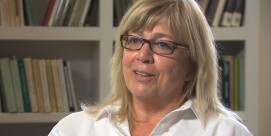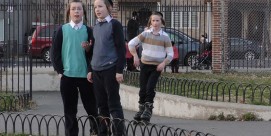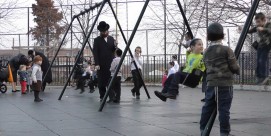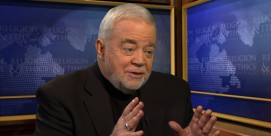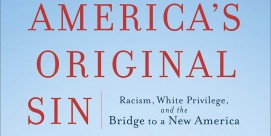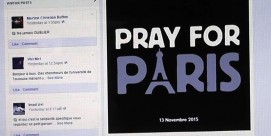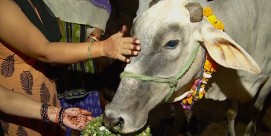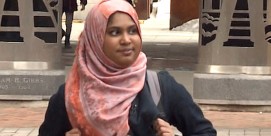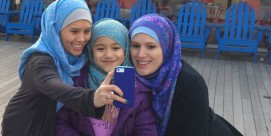Farming is often about homecoming, explains Mary Berry, executive director of the Berry Center. “It doesn’t mean [farmers] have to go to the place they were born,” she says. “The concept of homecoming is simply to take root some place and care about a place, not just for a short amount of time, but forever.” More
A lawsuit alleges that some private yeshivas run by Hasidic Jewish sects are not complying with New York state law by not teaching English, math, and science; an activist, pastor, and preacher says white and black churches must cross the bridge to a new America now; and a church in Baltimore runs a boxing gym as part of its ministry and neighborhood outreach. More
“I am a father of three children, and my concern today is that they should get a proper education, as all children are entitled to, in order to succeed in whatever they want to do when they get older,” says Yoel Falkowitz, a Hasidic Jew. More
“America’s original sin—it isn’t just slavery,” says author, activist, and Sojourners editor Jim Wallis. “It’s the kind of racism we created to justify the use of black people as chattel and property to build this nation, to say from the beginning that black lives matter less than white lives, and that sin is still with us.” More
“American exceptionalism, which I’ve been critical of for years, could be made true if we become a majority of minorities who learn to live together justly, and fairly, and respectfully,” says author and activist Jim Wallis.
MoreMillions now turn to Facebook, Twitter, Instagram, and YouTube to participate digitally in group grieving; recent religious violence traces back to an age-old controversy over the sacredness of cows in Hinduism; and an annual event encourages non-Muslim women to try wearing the headscarf for a day. More
“Cyberspace just gives us a new place to grieve, a new place to create rituals, a new place to memorialize the death of someone we care about,” says Carla Sofka, professor of social work at Siena College and co-editor of a book on death and grief in an online universe. More
“We don’t even believe that the cow is an animal,” says Devender Nayak. “We see it as a manifestation of God.” More
“A headscarf isn’t meant to hurt you; it’s what’s meant to protect you. You’re modest in the sense of God looking at you, but you’re modest to other people as well,” says Umand Weerasinghe, a young Buddhist woman in Maryland whose Muslim friend Sofia Amir loaned her a scarf to wear for Hijab Day. More
Watch two more women, one a Muslim and one a non-Muslim, participate in World Hijab Day, and see what their experiences are like. Say Muslim Yasmine Ison: “Wearing the hijab [gives] me this whole other freedom that I never had. I started to notice this control I had of myself.” More
Religion & Ethics NewsWeekly
X


